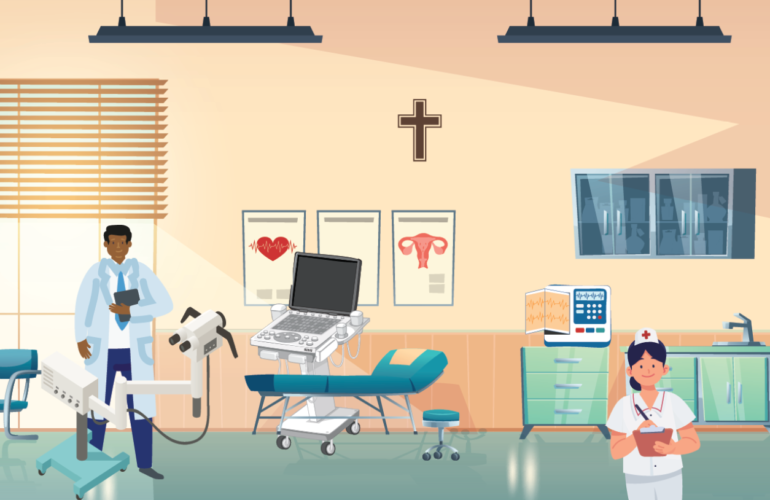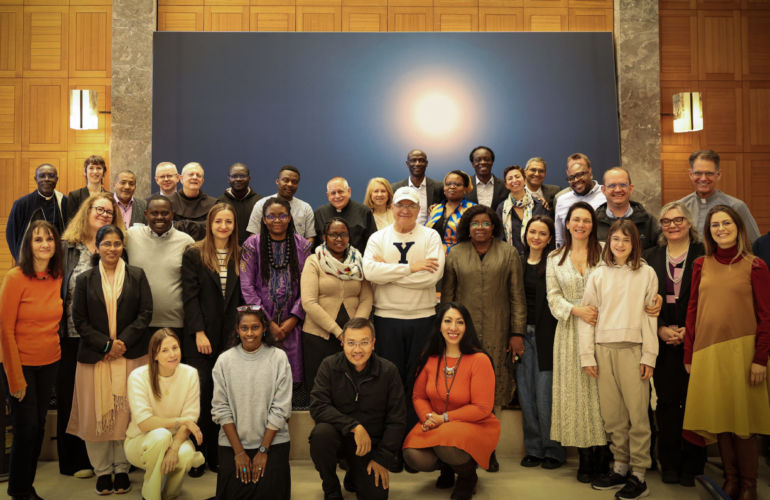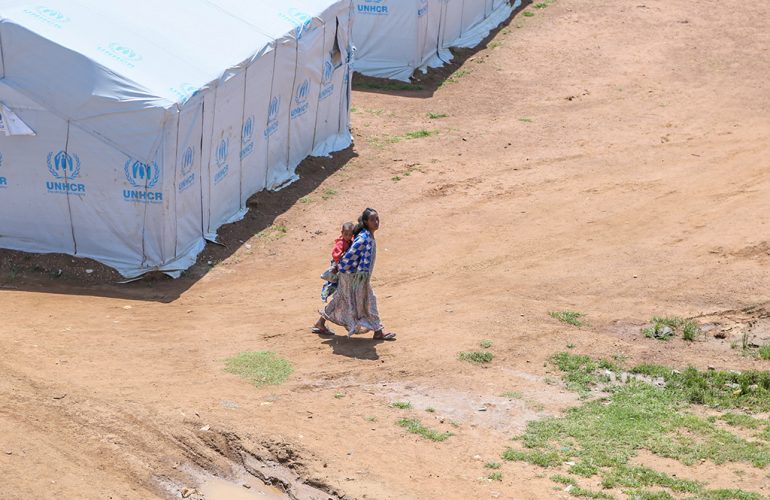ICMC and its Member in the Central African Republic Support the Safe and Dignified Return of Refugees
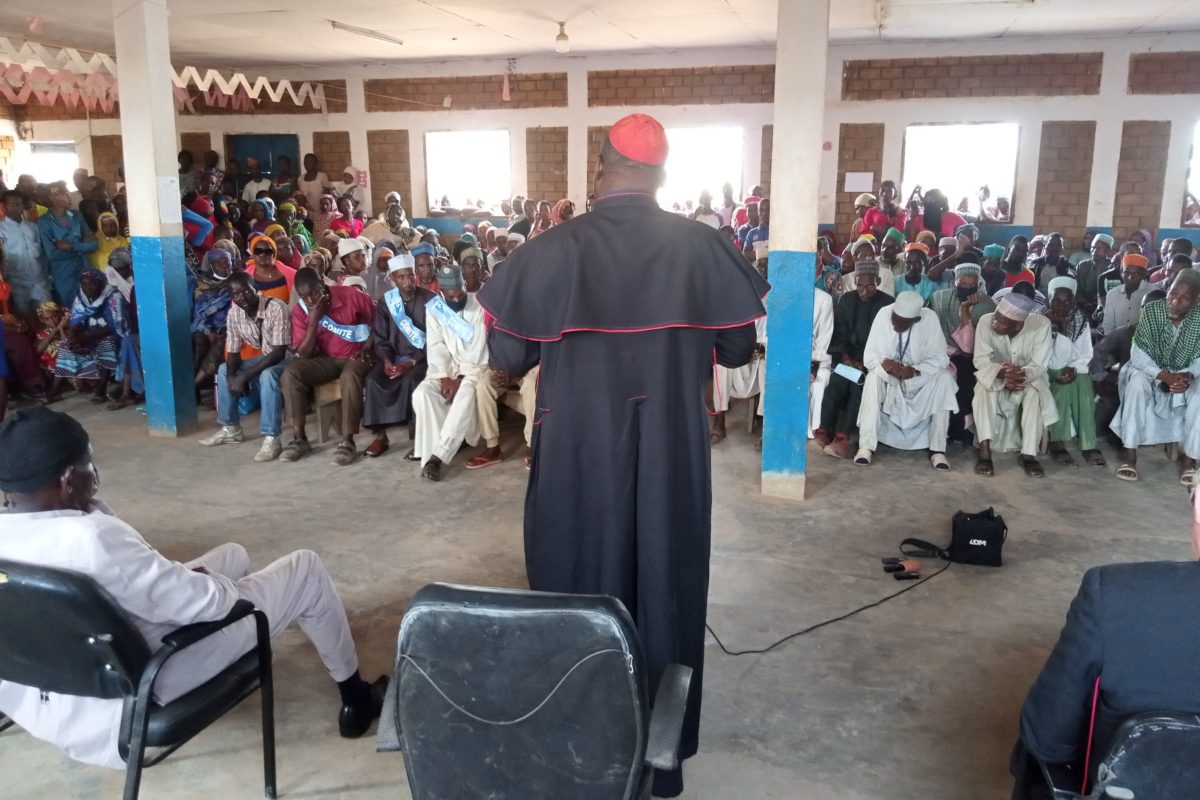
The Central African Republic’s Episcopal Commission for Migrants and Refugees (CEMIR) has been holding dialogues with refugees displaced by instability in the Central African region. A new joint project by CEMIR and ICMC supports the voluntary return and reintegration of people forced to flee.
The Central African Republic (CAR) has suffered decades of instability since its independence in 1960.
In the most recent crisis affecting the country, a violent seizure of power in 2013 led to widespread fighting between government forces and armed groups,setting a pattern of sporadic violence that has now been ongoing for two decades. Despite a February 2019 peace agreement, violence again flared around the 2021 national elections, with armed forces frequently targeting civilians, and the humanitarian situation in the country remains critical and volatile.
Just over 1.9 million Central Africans have been displaced since the crisis began, representing more than one-third of the country’s population. Just over 518,000 are internally displaced within CAR, while nearly 750,000 remain as refugees in neighboring States, including Cameroon, Chad, the Democratic Republic of the Congo (DRC), and the Republic of the Congo, with smaller numbers in Sudan and South Sudan. Cameroon hosts just under 50% of all CAR refugees in the region, while the most recent wave of post-election displacement led to large numbers of Central Africans seeking refuge in the DRC.
Refugees returning to CAR
Despite ongoing sporadic violence, almost 100,000 Central African refugees returned to CAR independently from neighboring countries between 2017 and 2021. For some, return is a positive choice based on improved circumstances in their home region. Others are forced to return due to instability in the countries where they sought refuge.
Since 2019, the UN Refugee Agency (UNHCR) and countries in the region have begun to put in place mechanisms to support the return of Central African refugees. Tripartite agreements on voluntary repatriation were signed between UNHCR and CAR with the government of Cameroon (June 2019) and DRC(August 2019). Although the implementation of both was delayed by border closures related to COVID-19, post-election violence in CAR, and in some instances, a lack of adequate resources, UNHCR facilitated the voluntary repatriation of 27,000 Central African refugees from 2017 to 2021.
In April 2022, UNHCR and seven central African states (Cameroon, CAR, Chad, DRC, the Republic of Congo, Sudan, and South Sudan) signed the Yaounde Declaration. This agreement established a regional coordination mechanism to provide solutions for the displacement crisis in the Central Africa region, including a commitment to support opportunities for voluntary repatriation where possible.
Refugees returning to CAR are faced with multiple challenges. Armed groups continue to target civilians, and homes and property may have been destroyed in the conflict. Fifty percent of the population is critically food insecure, and household stress has led to an increase in gender-based violence, early marriage, and survival sex work affecting women and girls. Limited livelihood opportunities for returnees are impacted by the threat of violence and further forced migration, and by natural phenomena such as heavy seasonal rains.
Listening to needs, providing solutions: the work of CEMIR
Through the Episcopal Commission for Migrants and Refugees (CEMIR), the Catholic Bishop’s Conference of CAR, ICMC’s member in the country, is engaged in a dialogue and exchange program with refugees living in neighboring countries. CEMIR was established in January 2018 to coordinate the assistance provided by Catholic parishes, seminaries, religious houses, and schools to people displaced by the humanitarian crisis following the 2013 outbreak of conflict in CAR.
“CEMIR’s mission is to have a church presence with our displaced brothers and sisters, the refugees, migrants and victims of human trafficking,” explains Msgr. Tadeusz Kusy, Bishop of Kaga-Bandoro in the Nana-Gribizi prefecture of CAR. “Above all, it is about coordinating the work that is already being done by the various church structures and by other organizations serving the forcibly displaced, so as to better organize pastoral care.”
Perspectives of CAR refugees
In 2022, CEMIR conducted visits to CAR refugees living in the East Region of Cameroon (March 28-April 4) and Chad (June 9-17). The missions consisted of meetings with refugees to discuss the challenges of their current situations, reflect on the possibilities for return, and identify their urgent needs to inform Church advocacy and partnerships in CAR.
During the visit to Cameroon, the CEMIR delegation met refugees in the village of Gado Badzere, located approximately 30 kilometers from the Cameroon-CAR border. Since March 2014, the village has been home to a 55-hectare site hosting 29,032 CAR refugees (9,661 households), the largest single number of CAR refugees in Cameroon. The delegation met with Gado Badzere resident and CAR refugee Issa Malissava, who reflected on the experiences of CAR refugees in Cameroon to date.
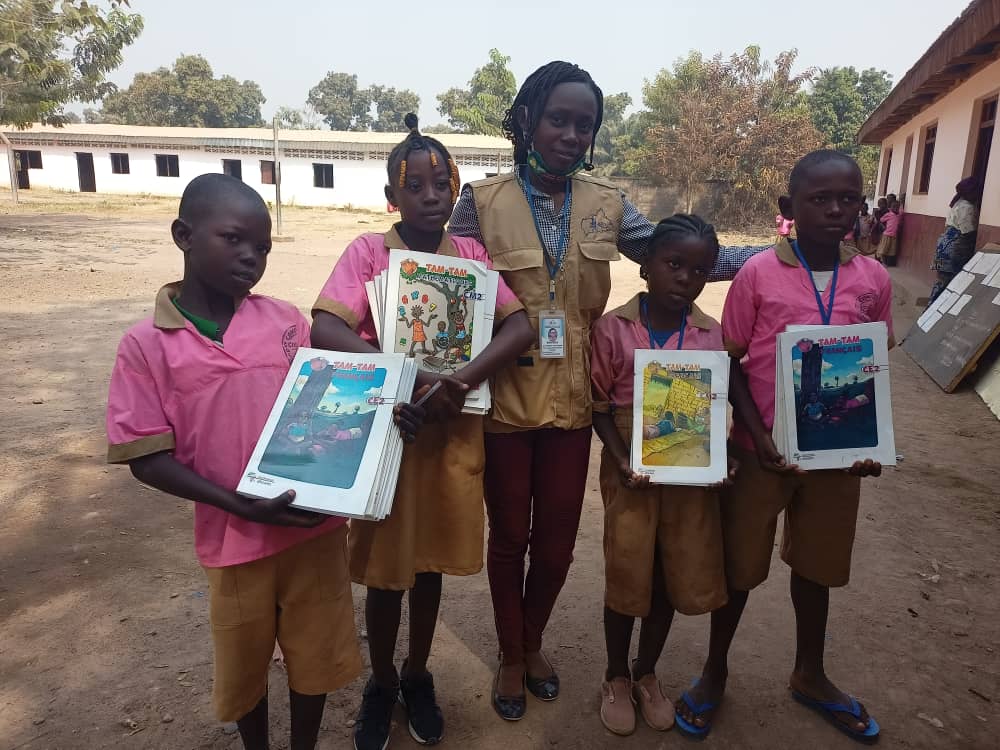
“As soon as we were forced to leave, UNHCR began to deploy to help us,” he recalled. “They built a transit camp with emergency shelters and a water supply, and coordinated with their partners to provide healthcare, distribute food and construct sanitary facilities. As refugees we really acknowledge the high standard of care and respect for our rights during this emergency period.”
Malissava highlighted several of the longer-term challenges faced by CAR refugees in Gado Badzere and across Cameroon. “Refugees here are dependent on the World Food Programme for our food security, but this is not sustainable,” he explained. “We would prefer to receive tools, equipment, and seeds so we can ensure our own food security and reduce our dependence on others.”
He also pointed to the value of refugees participating in the design of programs and interventions meant to assist them. “We believe there should have been frank and open collaboration between UNHCR and its implementing partners, and us the beneficiaries,” he explained. “Amongst us refugees there are people who have worked as government administrators, and as managers and leaders in humanitarian operations. We could contribute very effectively to improving the living conditions of CAR refugees in Cameroon, if given the opportunity.”
Supporting returnees in CAR
In late 2022, CEMIR and ICMC launched a new project to support the reception and integration of refugees returning to CAR from Cameroon and the DRC. From December 2022 to February 2023, the project will allow the construction and repair/renovation of houses for 30 families returning to southern CAR, 15 in Bangui and 15 in Zemio. Indeed, many returning refugees’ houses were destroyed by conflict or claimed by others during their absence.
Beneficiaries were selected by two local committees comprising representatives of CEMIR, returning refugees, and community leaders in the target areas. The same committees are supervising the construction and renovation work, with support from expert monitoring and evaluation staff at CEMIR. This project will conclude in February 2023, when 240 people will move into their newly constructed or renovated houses.
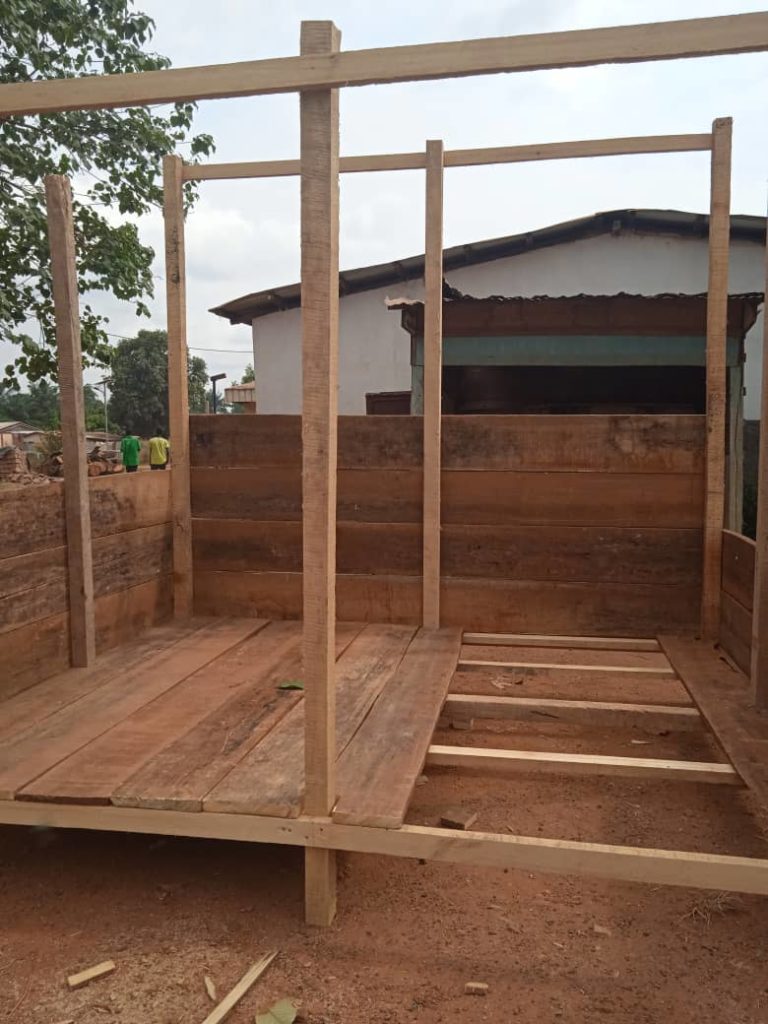
In upcoming months, a second ICMC-CEMIR joint project will focus on increasing returnees’ self-reliance and supporting their psychosocial needs. This project will target refugee children and young people, including those who have returned to CAR from Cameroon, DRC, Chad, South Sudan, and the Republic of the Congo, internally displaced children, formerchild soldiers, and survivors of child prostitution. These populations have experienced high levels of trauma, family loss, and displacement, and many have physical injuries and ongoing disabilities as a result of their experiences. The project will facilitate access to education for returning refugee children and young people, and build the capacity of those working with them to recognize and support their complex psychosocial needs.
Future projects will be implemented in various cities across the country, including in Cantonier, located nearly 580 kilometers from Bangui on the border between Cameroon and the Central African Republic. Here human trafficking is in full swing, with many women reduced to forced sexual activity for survival.
***
Learn more about CEMIR’s work with displaced people

Rachel Westerby
Independent writer and researcher on migration, refugees and integration.
